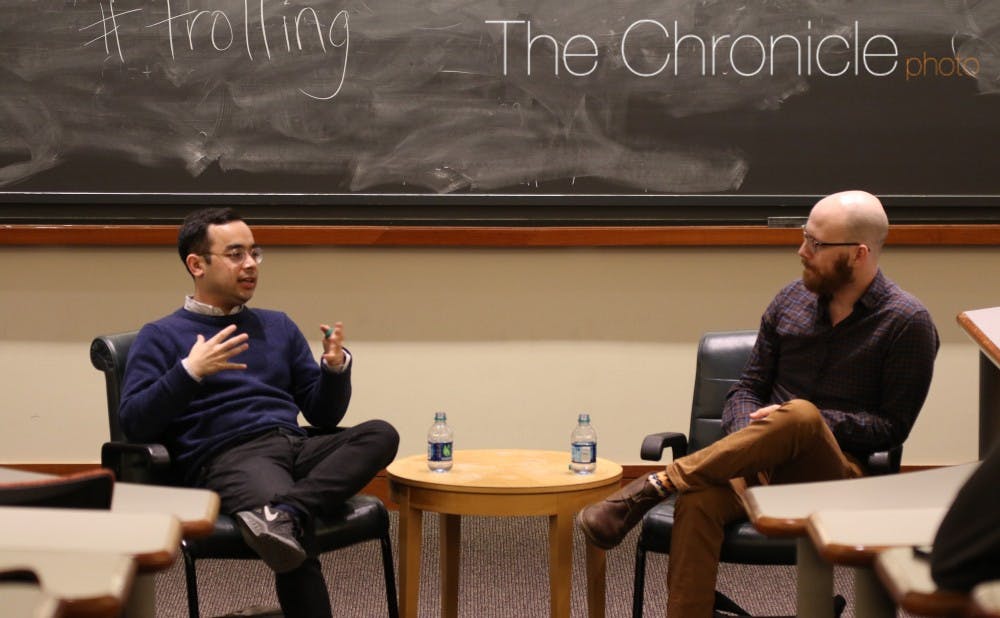Although Internet trolls were once known for leaving inflammatory comments on relatively inconsequential topics, trolling has become an international political issue.
Adrian Chen, a staff writer at The New Yorker, gave a presentation Tuesday night about his experiences reporting on a Russian “troll farm” called the Internet Research Agency for The New York Times Magazine in 2015. Although the Russian government exercises tight control over other forms of media, Chen discussed how Russians decided to use trolling to flood the Internet with misinformation, push pro-Kremlin messages and make it difficult to mobilize opposition.
The Internet Research Agency eventually expanded to the English-speaking Internet and began using their trolls to stage fake news events in the U.S., including an explosion in a Louisiana chemical plant and the arrival of a new Ebola case in Atlanta.
“It’s really more about sowing fear and doubt and making the internet polluted, one activist told me," Chen said. "The more we can kind of resist giving into paranoia, I think the better we will be in dealing with this problem.”
Chen also described his own personal experience with the Russian propaganda machine.
While interviewing a source for his piece, Chen was photographed sitting across from a Russian Neo-Nazi, whom his source had brought with her. After returning to the U.S., Chen found a video on a Russian nationalist propaganda site that went viral insinuating that he, an American reporter, was collaborating with a Neo-Nazi.
Chen admitted that he never expected Russian Internet propaganda and hacking to become an issue in the U.S. presidential election.
“When you write a story, you never really think about what kind of afterlife it’s going to have,” Chen said. “This is one of those stories that just keeps coming up again and again.”
He also added that an off-hand comment he made in a podcast about the Kremlin likely pushing pro-Trump propaganda was later used in a report by the Office of the Director of National Intelligence as confirmation that Russia had interfered in the election.
Despite his findings, Chen emphasized using caution when reading reports of Russian Internet propaganda.
“The actual propaganda is a mixture of true and false things, and I think that a lot of the discourse around Russia is definitely a mix of speculation and fact,” Chen said.
Jonathan Katz, director of the Franklin Humanities Institute's Media and Journalism Initiative, moderated a question and answer session after the presentation and mentioned a recent article that cautioned focusing too much on Russia rather than the Trump administration.
With the rise of fake news and increasing fear about Russian interference in American politics, Chen agreed and admitted it can be difficult to determine the veracity of some Russian claims.
“If it seems like such a good story that you’re just instantly needing to share it, it’s probably not true,” Chen said. “This is an issue that people are very excited about, and I think everything is just free claims. As long as they’re spun the right way and suggest a certain thing, they’ll get a lot of traction.“
The event was sponsored by the DeWitt Wallace Center for Media and Democracy and the Franklin Humanities Institute.
Get The Chronicle straight to your inbox
Signup for our weekly newsletter. Cancel at any time.

